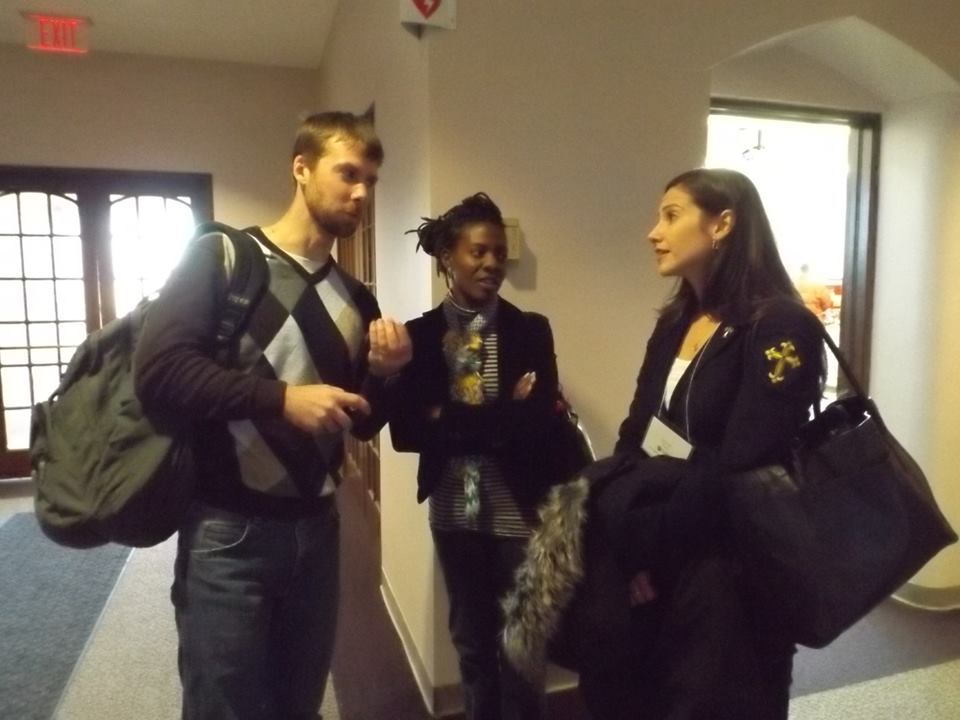
The Multi-Ethnic Symposium just concluded (January 27-28) reminds us of the changing mission environment in which the Lutheran Church–Missouri Synod seeks to be, as confessional Lutherans, a faithful witness to the visible church on earth. Whether any earthly manifestation of the kingdom of God, described in the New Testament as disciples of all nations, including those of all languages, tribes, and tongues (Rev 7:9), is exemplified by a church body that is 95% Anglo is a troubling question worth pondering. Certainly it can’t be our theology. Could it be our culture?
As cultural anthropologists reminded us, we cannot separate theology from culture except in the abstract, but we need to know and recognize the difference. The Gospel is incarnate and came in the person and work of the Jewish man, Jesus of Nazareth, son of David and Abraham, son of Adam, son of God. The anchors of Lutheran theology are grounded in solus Christus, sola gratia, sola fide, and sola scriptura. The cultural elements of the LCMS are tied to 16th century Europe, the Saxon immigration, and American life in the last several centuries, where our beloved synod has adapted and changed. We have learned to function as a synod primarily in English, not German, even as we now hear other languages amongst us. The same confessional Lutheran theology, for it to be biblical and catholic, can be manifest, articulated, and celebrated in a diversity of cultural expressions.
It is easy to expect others to give up some cultural identity to join us. It is harder to give up some of our cultural heritage, which also relates to our sense of identity. But if cultural claims might actually interfere with the mission of Christ to all nations, in which culture is always present but secondary to the new unity in the Body of Christ, shouldn’t we be willing to consider what we, too, might give up for the sake of the larger identity?
This is a critical issue without easy answers, and Concordia Seminary will continue to provide safe space for listening and learning from one another. We will continue to take seriously the insights of cultural anthropology, too long marginalized in our discussions of theology and culture. We will continue to listen to the voices and variety of cultural expressions, incorporated into our life and worship and witness. We will continue to affirm and profess our Lutheran theology, as anchored in Christ, normed by Scripture, and articulated in our Confessions. We will continue to utilize the creativity and “problem-solving” strength of our Lutheran heritage, now into the 21st century, built on the past but always ready to engage the present and future. This is no time for simple repristination or a formalized restoration of the past as though that will adequately address the issues of today and tomorrow.
So what will a multi-cultural LCMS look like? Some corners of the church are showing us, and it is a joy to behold. We even had a foretaste of feasts to come in the symposium worship service—as nations gathered, flowing into the Chapel of St. Timothy and St. Titus for a thoroughly Lutheran (and thus also catholic) worship service of word, prayer, and praise that reflected the inculturation of the Word of God into a wonderful diversity of cultural expression. Maybe this isn’t so hard. But it does take some good work.
We Anglo(-Saxons) have much to learn from others, even as we have something to offer and teach as well. This will take listening, time, and patience. We need to understand and negotiate the ever-present differentiations of power. It’s not simply “be or become like us,” but how will we all be together in Christ? Every one gives up something, and for many, that is the support of family and indigenous culture that many of us, as “native” Lutherans, often take for granted. While many of our own children are now reminding us that we can be left behind with our beloved synod, sons and daughters of those outside the LCMS culture are finding Christ somewhere in our midst, and we should rejoice in the power of God’s Word and Spirit that unites us.

Leave a Reply
You must be logged in to post a comment.